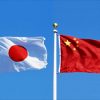On December 12 North Korea succeeded in putting into orbit a satellite (or other object) after the three stages of the Unha-3 rocket separated as planned. Contrary to the previous attempts, the launch was successful, the three-stage rocket functioned correctly and the satellite (or other object) now appears to be now orbiting the earth.
The launch took South Korea, Japan and the West by surprise. Just a few days before, North Korea announced that it was extending the ‘window’ for the launch from 10-22 December to 29 December due to an apparent technical glitch. Some experts believed that Kim Jong-un would be open, contrary to his father, to engagement with the international community, especially after the failed missile launch last April. Besides, the episode was particularly unsettling because the technology for a long-range rocket is very similar to that for an Intercontinental Ballistic Missile (ICBM), making the experts conclude that the country has already mastered the technology and has therefore the know-how to manufacture an ICBM with a range of 10,000 km, sufficient to reach the continental US. Fortunately, as discussed below, the North Koreans are far from being able to install a nuclear warhead in the missile and to enable it to re-enter the atmosphere.
There are several reasons for the episode’s timing. First, 2012 is a special year for North Korea: Kim Jong-un is still taking control of the country and especially its military, so a show of force was necessary; 2012 is the year that previous governments in the North had earmarked as the time when a ‘strong and prosperous country’ would be achieved (and ‘strong’ it is, while not ‘prosperous’), so the launch might be intended also to ensure stability at home; and it must be borne in mind that Kim Jong-il died in mid-December of last year.
Secondly, there are forthcoming presidential elections in South Korea. Pyongyang might have decided that its gesture could interfere with the campaign and perhaps with the results. On 11 April of this year, North Korea had carried out a missile test only two days in advance of the parliamentary elections in the South. Besides, Japan has general elections on 16 December.
Third, Kim Jong-un might have decided that an increase in his international bargaining power is necessary, especially as the economy remains weak and food is scarce. One of the consequences of the launch might quite possibly be an increase in food aid, from South Korea at least.
Fourth, the young leader might have decided that he had to further consolidate his power within the Workers’ Party and among the new military chiefs. In fact, the operation’s success might guarantee a greater achievement in this respect than the action taken during the entire Kim Jong-il era (1994-2011).
Five, and somewhat disturbingly, North Korea might have been helped in this case by Iran or even Pakistan. There are rumours that Iranian ‘observers’ were present at the site on 12 December, although Tehran has vigorously denied them.
The dangers the episode can entail are many. One is that the rocket’s success might –imminently- lead to a nuclear test. This already occurred in 2006 and 2009, after missile tests that, however, both failed.
Another is that, as North Korea appears to already be able to launch an ICBM –that is, it has the know-how to build a viable long-range missile–, all of its subsequent efforts might be directed at miniaturising nuclear warheads. The integration of viable long-range missiles with nuclear weapons would be, as former US Secretary of Defense R. Gates put it, ‘a direct threat for the US’. Fortunately, there is a long way to go before North Korea can obtain a 500 kg or 1,000 kg nuclear warhead (some sources say that the Unha-3’s payload this time has been of around 100 kg). Besides, North Korea does not yet control the technology required to allow the rocket/missile to re-enter the atmosphere and to make the nuclear warhead withstand the very high re-entry temperatures. So a chemical and biological attack is, for now, out of the question.
The international consequences of the rocket launch would surely include a UNSC response, as it is in breach of the sanctions approved in 2006 and 2009 (resolutions 1718 and 1874, which forbid the testing of missiles and other WMDs). The Security Council might broaden its financial pressure, adopt measures against additional companies and individuals, and ensure a more robust implementation of these and previous sanctions.
But there is a danger that a permanent test-sanction-test spiral takes hold, unless the international community convinces China (Beijing has used the words ‘we regret’ for the first time) to exert maximum pressure on North Korea (perhaps guaranteeing that there will be no regime change or collapse) and the UNSC reaches an agreement on adopting sanctions with more teeth.
So a more cautious way ahead might be needed. The Six-Party Talks (started in 2003 and abandoned by North Korea in December 2008) should be reinitiated. Pyongyang’s concerns should be addressed: formal peace treaties with South Korea and the US; diplomatic recognition; and economic, energy and humanitarian aid. But North Korea should, in exchange, dismantle its nuclear and missiles programmes after slowing them down and then freezing them. The real issue here is that, after 12 December, such a goal appears to be increasingly remote.



